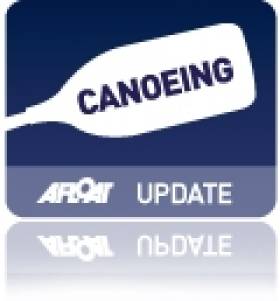Displaying items by tag: Retires
Olympic Canoeist Eoin Rheinisch Bows Out
#CANOEING: Eoin Rheinisch, a three time Ireland Olympian in canoe slalom, has retired.
In a statement, the Kildare man looked back over his career.
In 1996, I watched the Atlanta Olympics with my brothers at our home in Leixlip. Inspired by my sporting heroes expertly negotiating the coloured poles hanging down over the heaving white water, I made a decision that would shape the rest of my life. I wanted to represent Ireland at an Olympic Games. The past 18 years of chasing that dream - and other related goals - have been an incredible experience but the time has come for me to move on to the next chapter of my life.
I have given the decision to retire much thought and it is not an easy thing to do. I also considered allowing retirement to drift past unannounced. But I wanted to highlight what sport has done for me and thank all of the wonderful people that have helped me throughout my career.
During the incredible 90 seconds of a slalom race, I am on my own to face down those coloured poles and heaving water. But the preparation to reach that stage has involved commitment and support from sporting bodies and countless individuals at every stage of my career. This has been an all-consuming pursuit involving full-time training and travel outside of Ireland for more than 200 days a year.
That type of commitment would not have been possible without the support of the Irish Sports Council, Irish Institute of Sport, Olympic Council of Ireland, Canoeing Ireland and the various private sponsors that have believed in me.
Over the years, my sporting idols have changed but my real deserved heroes are my parents, brothers, close friends and partner. This career choice and what it involves can often be a selfish pursuit and, despite this, they have always been there for me no matter how bad the outlook is. I don't say it often enough ... "thank you".
I have been so fortunate to have the gift of good health that has allowed me to have such a long sporting career. My parents, my own injuries and illnesses along the way have taught me to never take this gift for granted. Representing Ireland at three Olympic Games has been an honour and a privilege. Finishing 4th in Beijing was a standout moment. Coming through under extreme pressure is one of the most exhilarating feelings I know. My own personal highlight was winning a World Cup in Spain during the selection process for the Athens Olympics.
Every highlight had plenty of accompanying lows, which were a necessary part of my development. Overcoming obstacles and responding well to dips in performance have helped shape the type of person I am today.
I am still involved in high-performance sport thanks to the education provided by the Institute's Pursuit of Excellence Programme. I want to pass my experience on to the current crop of junior and under 23 athletes and have already started working with them. I have no doubt that future Olympians will emerge from this inspirational group of youngsters.
I am sure there are even more challenges in the future and I hope to use both my sporting experience and formal education, including a degree in Business and Marketing, as I face them down.
Karl Dunne of Canoeing Ireland said: "Eoin has been a great ambassador for the sport of canoeing throughout his career, my overriding impression of Eoin has always been one of professionalism. While he may be hanging up his competitor paddles, Canoeing Ireland are delighted that there is real legacy in Eoin taking up the position as National Coach to the U23 and Junior Canoe Slalom Squads. For the first time in the organisations history we have a true home grown high performance coach . On behalf of all at Canoeing Ireland, I wish Eoin the very best of luck as he moves from the water to the riverbank".
Pat Hickey, President Olympic Council of Ireland and IOC executive Member, said: "Eoin has been a great ambassador for canoeing and for Olympism. I followed his career with interest since he first came to our attention and his 4th place at the Beijing Olympic Games is just one of the many highlights along the way. His training, preparation and attitude has always been most professional and he is a terrific role model for the next generation. I wish him well for the future".
John Treacy, CEO, Irish Sports Council, added: "Eoin is one of the outstanding Irish athletes of his generation. He has had a great career, one we were proud to support. More than that, he is a true gentleman and has always been a pleasure to work with, a professional in every aspect of his preparation and performance. On behalf of the Council I want to wish him well in his retirement from international sport".
Eoin Rheinisch's Main Achievements:
· 3 Time Irish Olympian – Athens 2004, Beijing 2008, London 2012.
· 4th Place at the Beijing Olympics
· World Cup Gold Medallist – La Seu D'Urgell, Spain.
· European and World Championship Finalist.
· 7 Time World Cup Finalist





























































